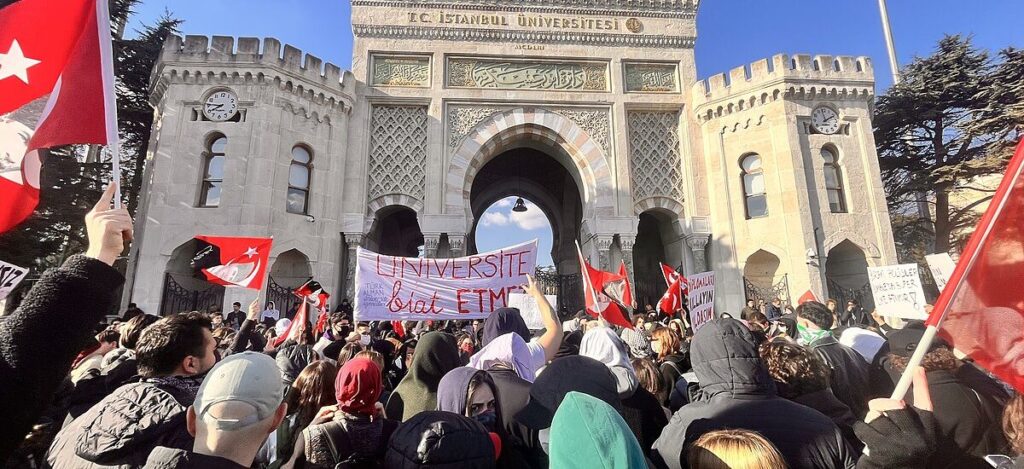In the five months since Turkey detained the main political opposition’s top political candidate, the country has seen a sweeping escalation of arrests targeting opposition politicians, activists, and students in what critics describe as an attempt to eliminate dissent ahead of future elections.

A wave of arrests across Turkey has widened in recent months, with opposition mayors, municipal officials, activists, and students swept up in what critics describe as an expanding campaign of repression aimed at silencing dissent and weakening the country’s main opposition.
The turning point came on March 19, 2025, when Istanbul’s mayor and prominent opposition leader Ekrem İmamoğlu was detained. His arrest set off mass protests nationwide and led to the detention of more than 1,000 people, including demonstrators, journalists, and political figures. Since then, authorities have intensified their pursuit of opposition-run municipalities and outspoken citizens, casting an increasingly wide net.
In Istanbul, police arrested İnan Güney, the mayor of the Beyoğlu district this week, along with about 40 others in August as part of a corruption probe targeting local administrations run by the Republican People’s Party. The Beyoğlu district is governed by the opposition Republican People’s Party whose municipalities have come under repeated pressure this year. Nine of Istanbul’s 26 CHP district mayors have now been detained on charges such as bribery and fraud, allegations that they deny.
The crackdown has spread beyond Istanbul. On July 1, about 120 CHP officials were detained in İzmir, including former mayor Tunç Soyer and provincial leader Şenol Aslanoğlu. Prosecutors accused them of tender-rigging and fraud, but opposition figures say the arrests are politically motivated and designed to neutralize party leadership ahead of future elections.
Civil society activists have also come under fire. In March, LGBTQ+ youth activist Enes Hocaogullari was detained after criticizing police violence and democratic backsliding in a speech at the Council of Europe in Strasbourg. He faces charges of spreading “misleading information” and “inciting hatred.”
Students, meanwhile, have emerged as both participants in protests and prominent targets of repression. In April, Esila Ayık was arrested for carrying a placard reading “Dictator Erdoğan” during a demonstration, despite suffering from serious health problems. She was released only in mid-May. Last month, Doruk Dorucu was arrested after publicly tearing up his diploma during a graduation ceremony to protest government interference in universities.
A Deepening Authoritarian Rule
Human rights advocates warn that the scope of the arrests shows a pattern: repression is no longer confined to opposition leaders but is reaching deeper into society, from city halls to student campuses.
“Everyone is afraid they can be taken from their homes at dawn over one tweet or one joke they made in daily chitchat with friends,” Dorucu said in an interview with the New York Times.
While Turkish authorities insist that the ongoing investigations are aimed at rooting out corruption, critics argue that the escalating detentions represent a concerted strategy to dismantle opposition power bases and suppress civic resistance. The breadth of the crackdown suggests a phase of repression that is expanding across political, social, and generational lines.

